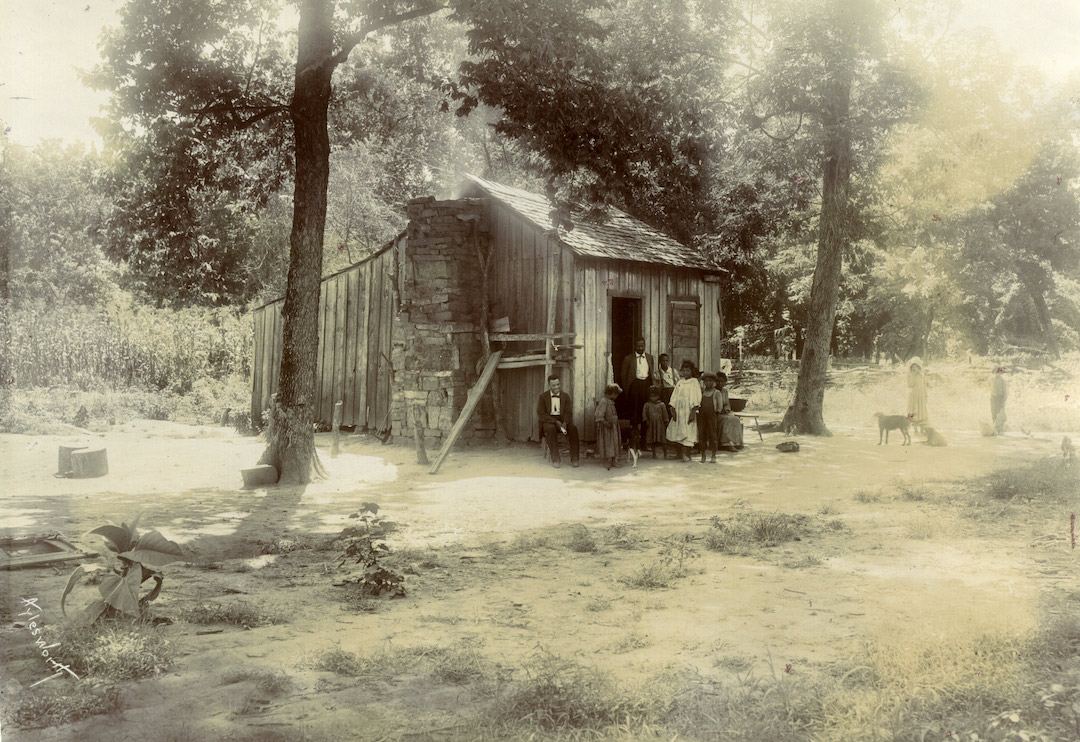
WAR & EMANCIPATION
Artwork: A plank residence in the Arkansas River Bottom, photographed by Allison Aylesworth. Source: Oklahoma Historical Society.
The Civil War came to Cherokee Nation in 1861. The divide between the affluent, bicultural families and more conservative or traditional Cherokees widened over chattel slavery. Though the lines were not always clear-cut, wealthier slaveholding Cherokees tended to support the Confederacy. Others sided with the Union because they opposed the wealthier Cherokees, disagreed with slavery in Cherokee Nation or had other reasons.
Many enslaved people found themselves on the move again, with owners retreating from Cherokee Nation to Confederate-supporting Texas and Arkansas. Those who stayed in Indian Territory were at the mercy of fighting between Northern and Southern sympathizers. Other slaves escaped to Kansas. There, some men volunteered for the Union, including in the 1st Kansas Colored Infantry – the first Black regiment to see combat in war. Though the Cherokee National Council voted in February 1863 to free all slaves within Cherokee Nation, the rights of emancipation would not be enforced until the Cherokee Treaty of 1866. This document identifies Cherokee Freedmen as Cherokee Nation citizens afforded all the same rights as Native Cherokees.
However, Freedmen faced barriers to citizenship, including a deadline to return to the Nation. In 1875, the Cherokee people elected Freedman Joseph Brown of Tahlequah District to the Cherokee National Council. He is believed to be the first of at least seven Freedmen elected to the council between 1875 and 1906. Inequality, however, remained in many facets of life.
Cherokee Freedmen who served on the Cherokee National Council:
Joseph Brown, Tahlequah District, 1875–1877
Rev. Jack Brown, Illinois District, 1885–1887
Frank Vann, Illinois District, 1887–1889
Jerry Alberty, Cooweescoowee District, 1889–1891
Joseph "Stick" Ross, Tahlequah District, 1893–1895
Ned Irons, Tahlequah District, 1895–1897
Samuel Stidham, Illinois District, 1895–1897
Cherokee Freedmen who served on the Cherokee National Council:
Joseph Brown, Tahlequah District, 1875–1877
Rev. Jack Brown, Illinois District, 1885–1887
Frank Vann, Illinois District, 1887–1889
Jerry Alberty, Cooweescoowee District, 1889–1891
Joseph "Stick" Ross, Tahlequah District, 1893–1895
Ned Irons, Tahlequah District, 1895–1897
Samuel Stidham, Illinois District, 1895–1897
READ MORE LIKE THIS
